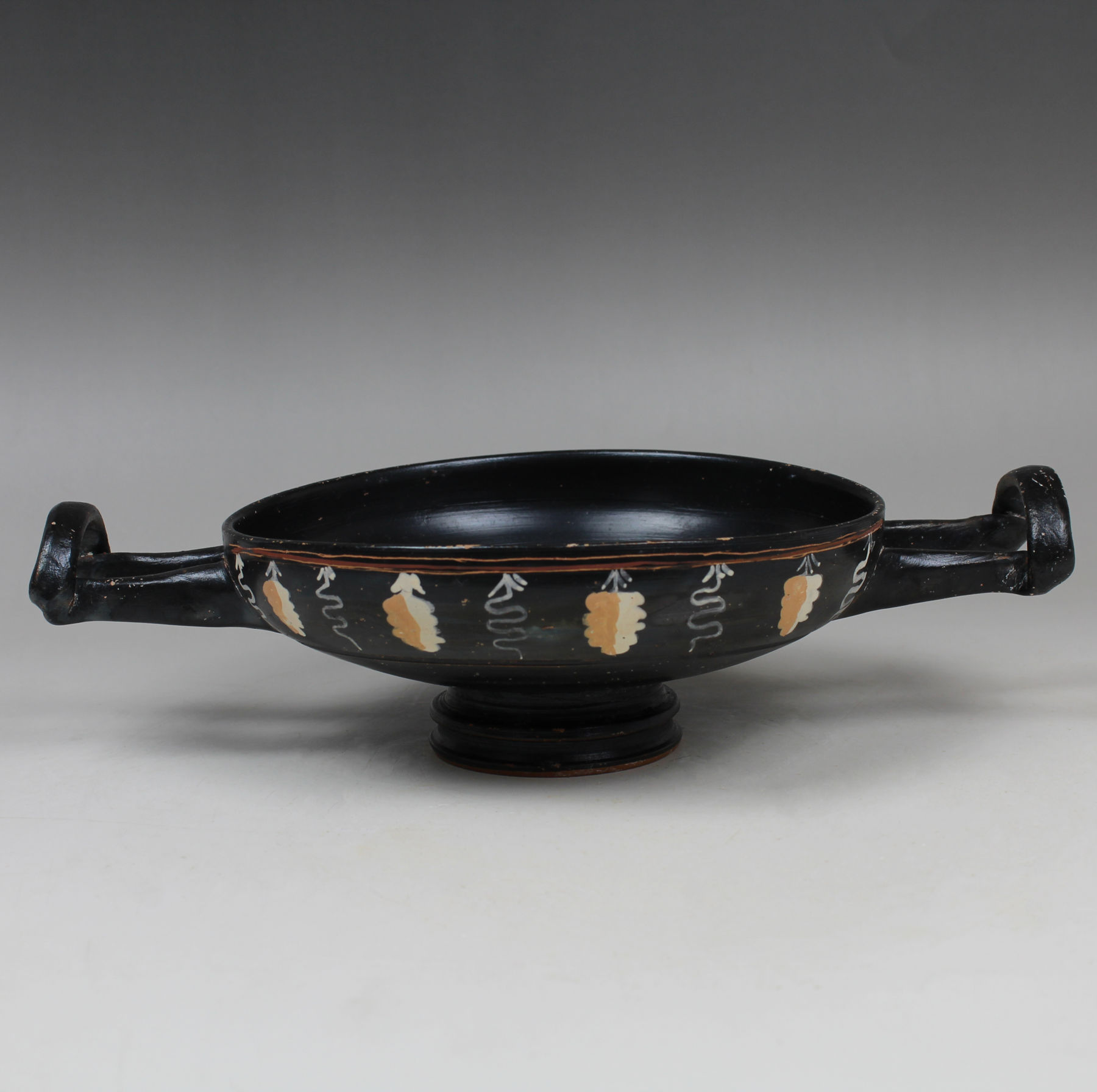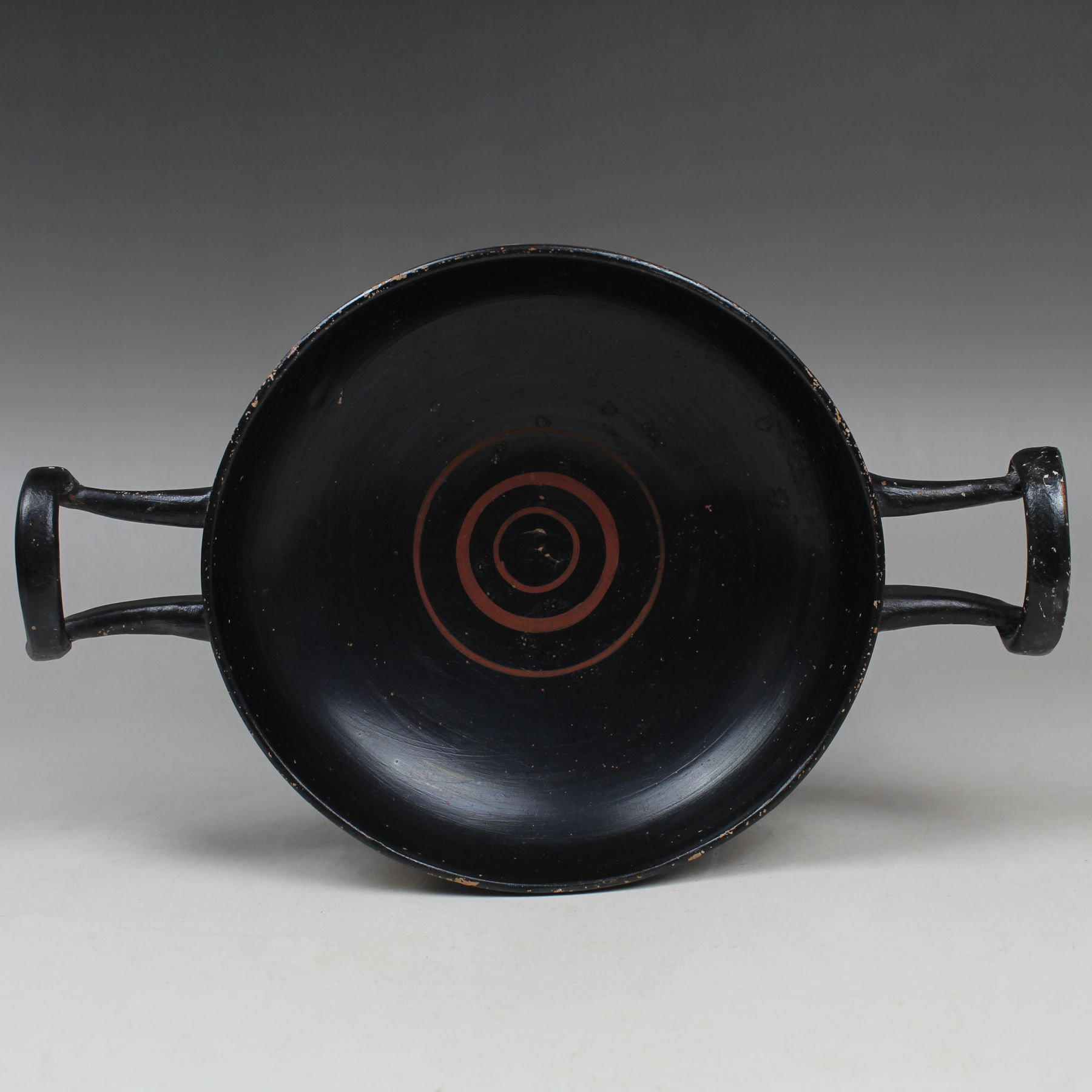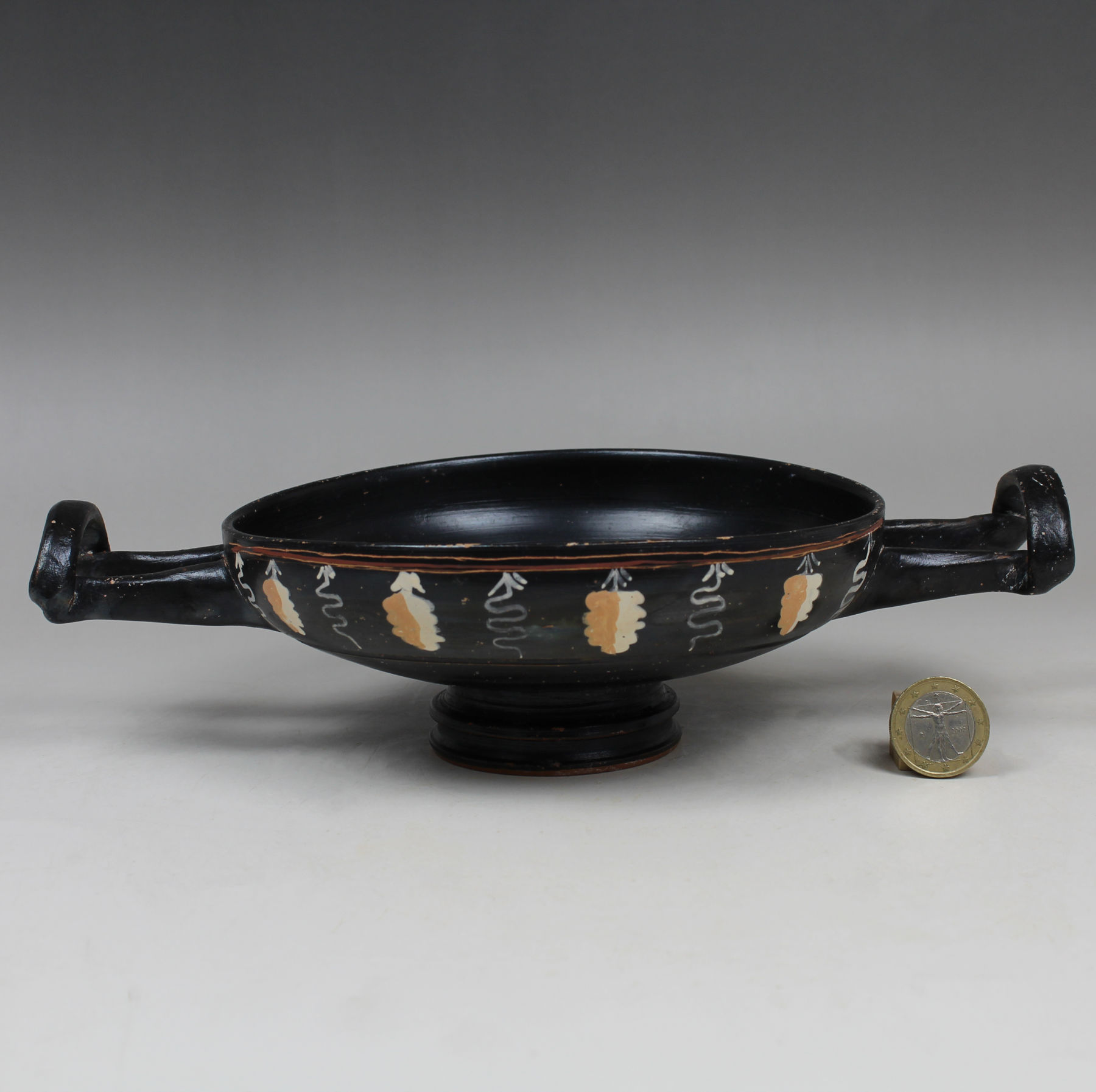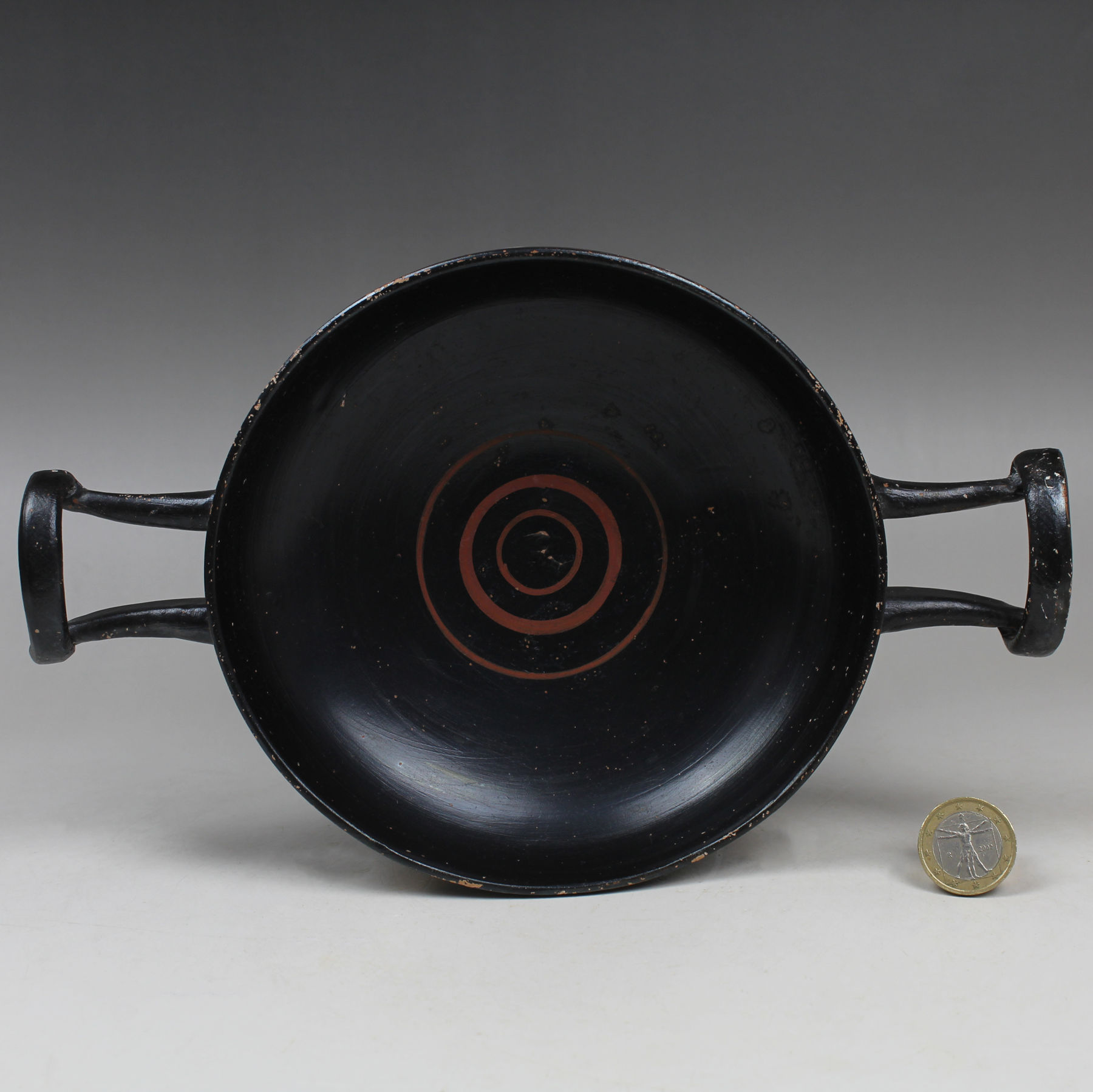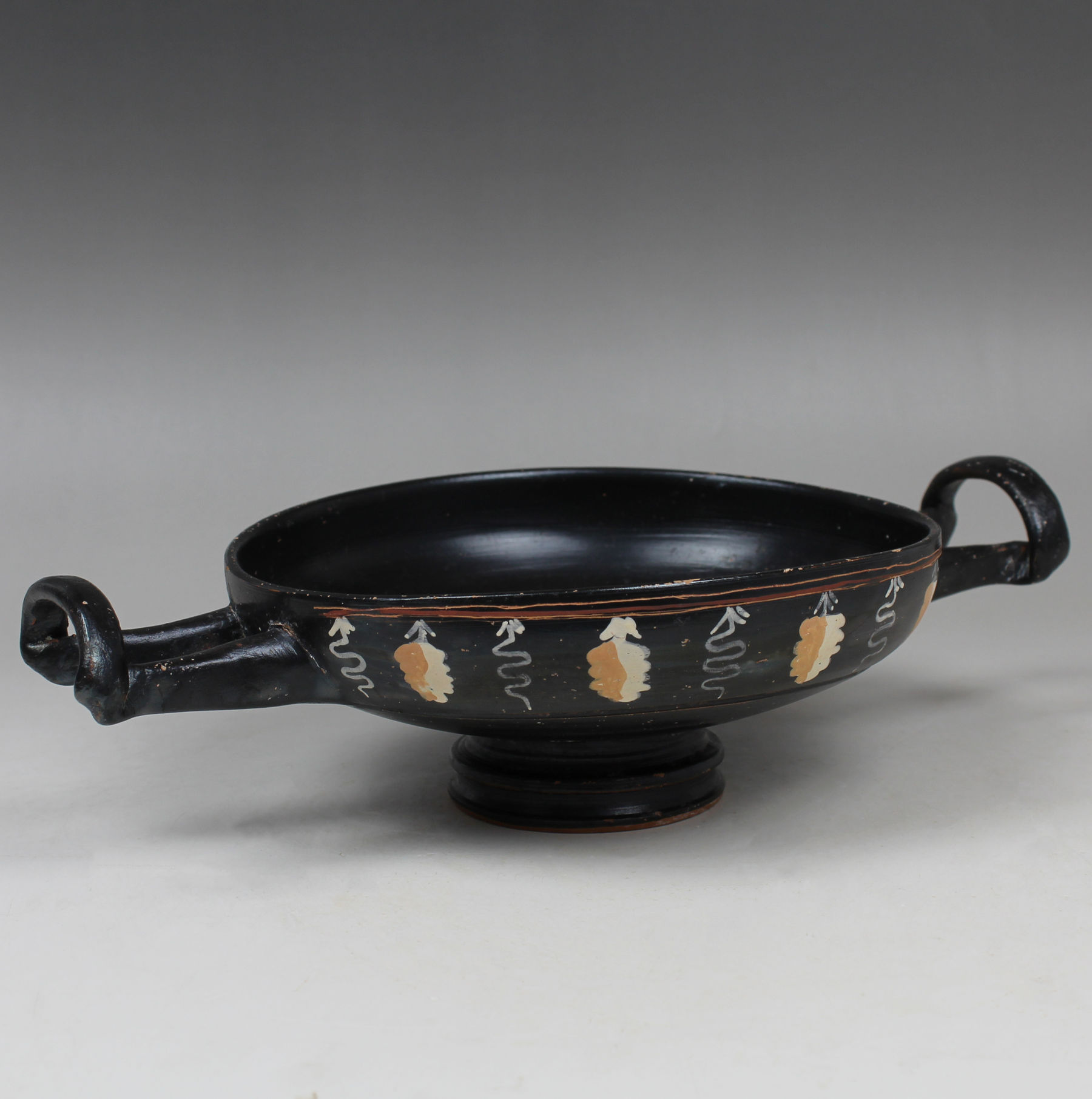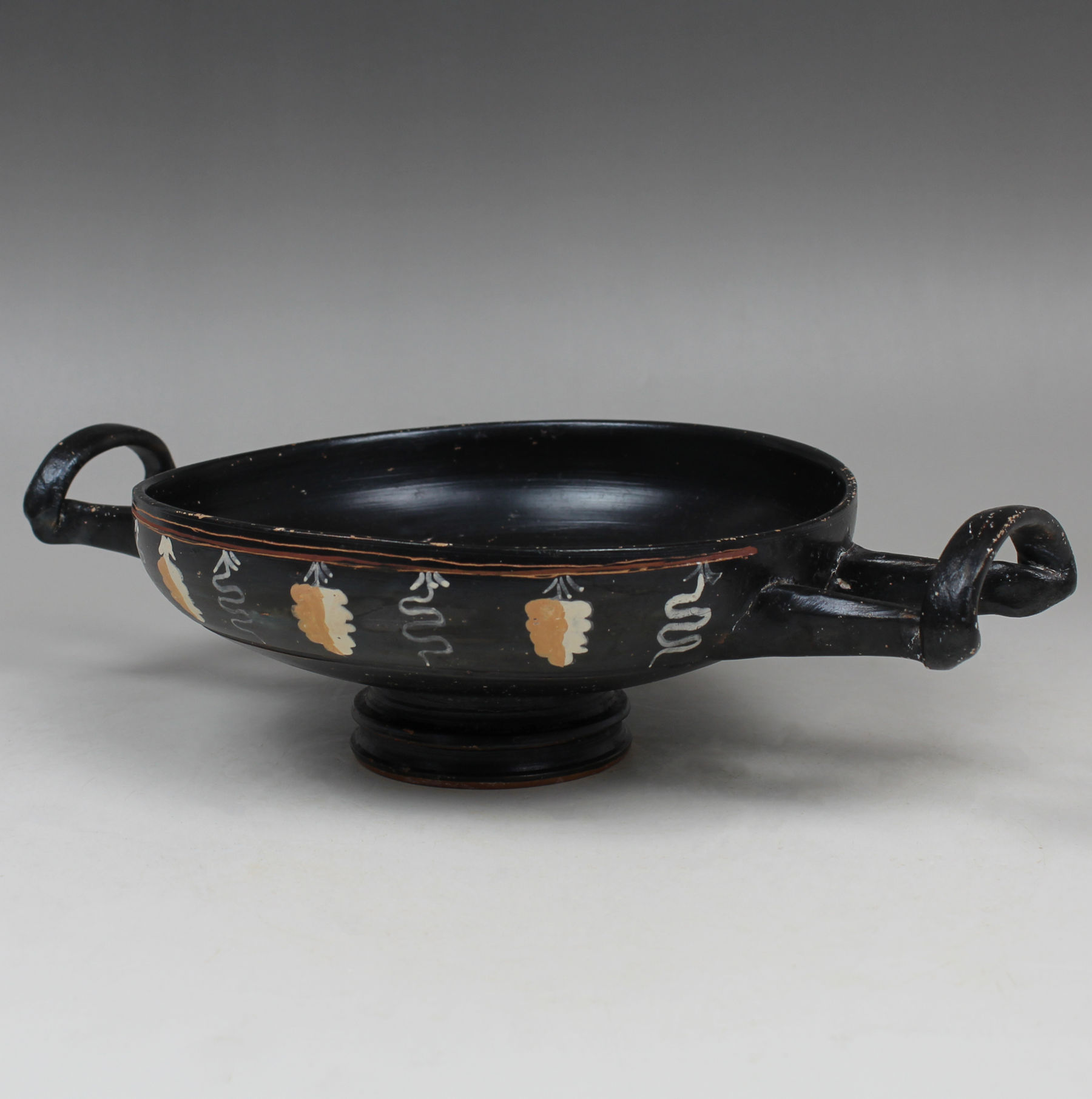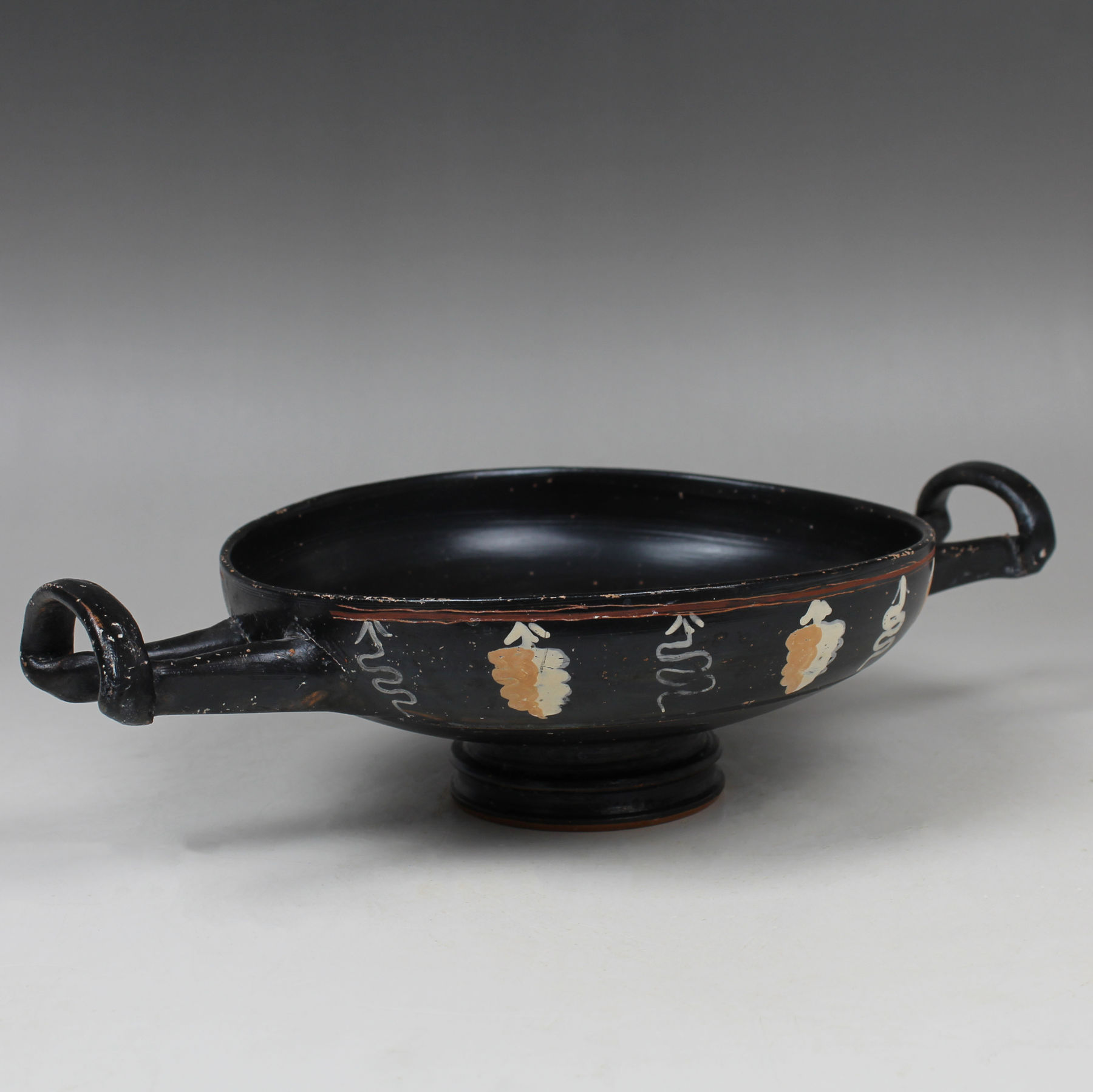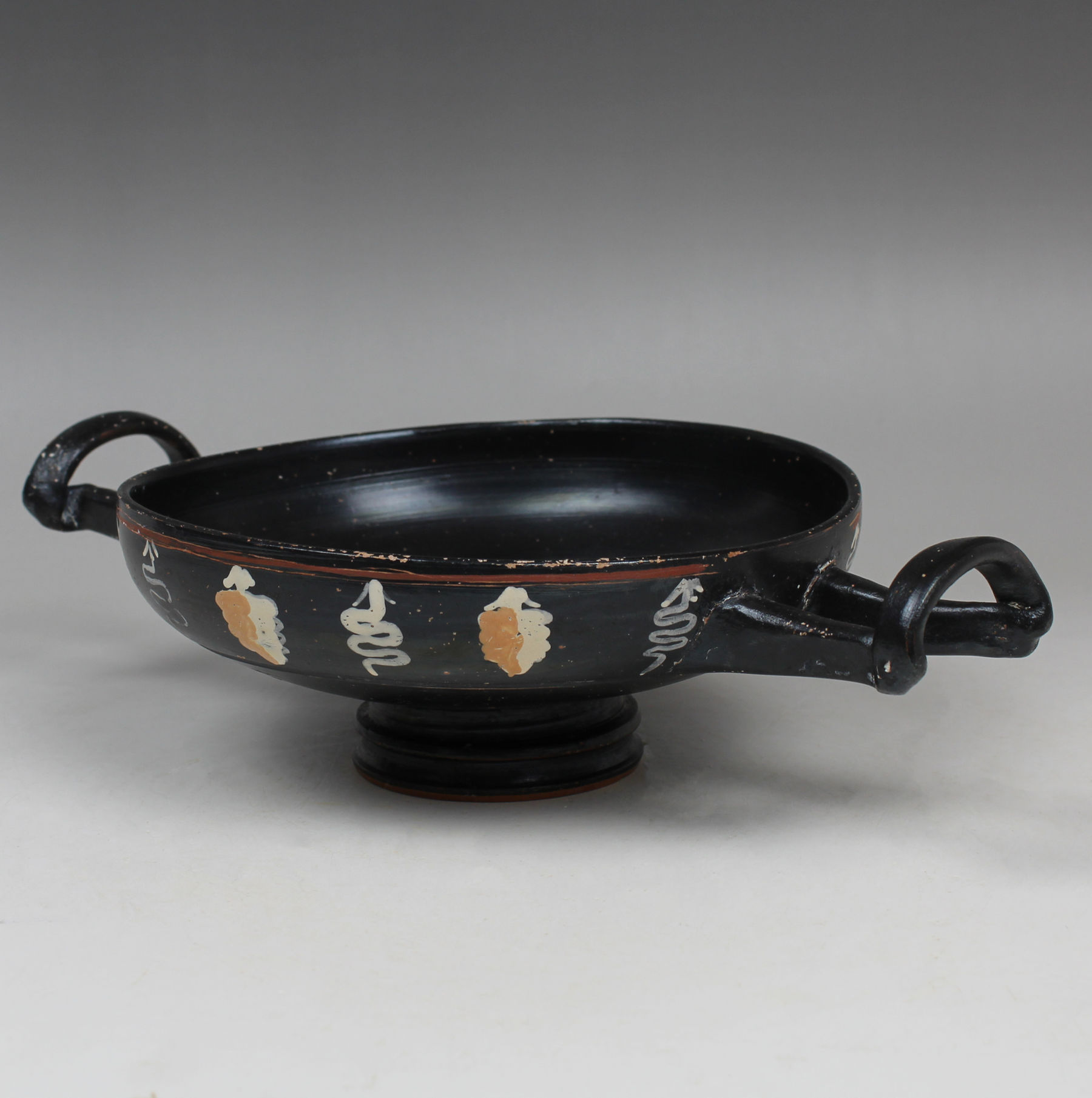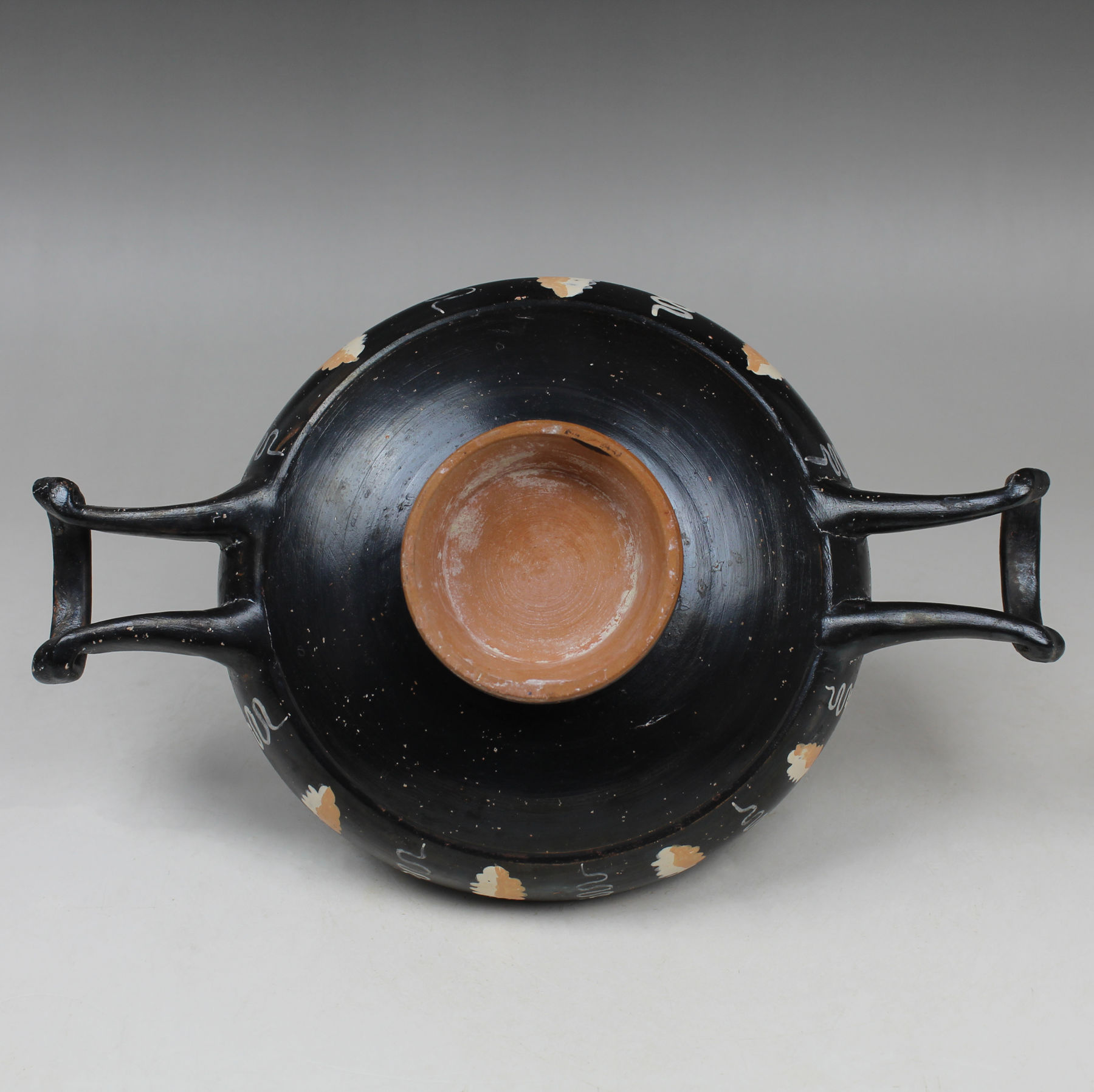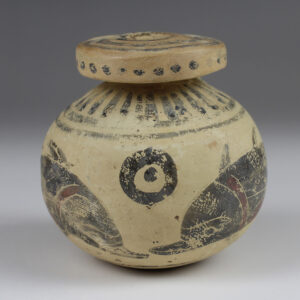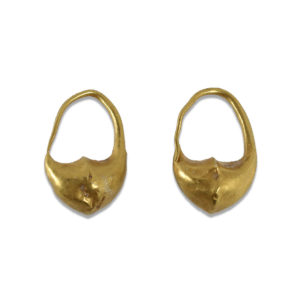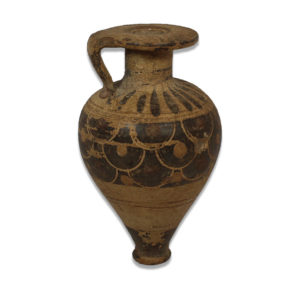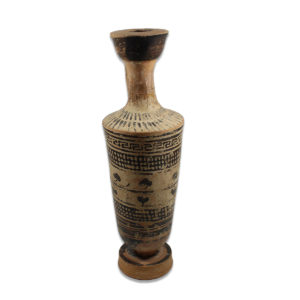Description
| ITEM | Kylix |
| MATERIAL | Pottery, Gnathia ware |
| CULTURE | Greek |
| PERIOD | 4th Century B.C |
| DIMENSIONS | 60 mm x 245 mm x 153 mm |
| CONDITION | Good condition |
| PROVENANCE | Ex Belgian private collection, acquired from Christophe Varosi Gallery, Brussels in 2001 |
The kylix is a type of ancient Greek drinking cup with a shallow, broad bowl and a pair of horizontal handles attached to the sides. Popular from the 6th to the 4th centuries BCE, kylixes were commonly used in symposia, social gatherings where men would come together to drink wine, converse, and partake in various entertainments. The distinctive shape of the kylix allowed for easy handling and drinking while reclining on couches, which was the customary posture during these gatherings. The interior of the bowl often featured red-figure or black-figure decoration, showcasing scenes from daily life, mythology, or symposium-related activities. Some kylixes also had inscriptions or dedications that provided additional context.
Gnathia ware is a type of ancient Greek pottery that originated in the 4th century BCE, primarily in the southern Italian region of Apulia. This distinctive style of pottery is named after the site of Gnathia in Apulia, where many examples were excavated. Gnathia ware is characterized by its black-glazed surface, often decorated with red and white paint. The designs on Gnathia ware are varied and can include scenes from mythology, theater, and everyday life. Vessels like kraters, amphorae, and especially askoi (small, flask-shaped vessels) were commonly produced in Gnathia ware.
The kylix and Gnathia ware both offer valuable insights into ancient Greek culture, art, and social practices. The kylix, with its connection to the symposium, reflects the importance of communal drinking and social interaction in Greek society. On the other hand, Gnathia ware provides a glimpse into the artistic experimentation and regional variations in pottery production during the Hellenistic period, showcasing the diversity and creativity of ancient Greek artisans.


